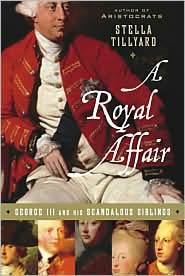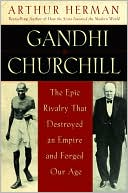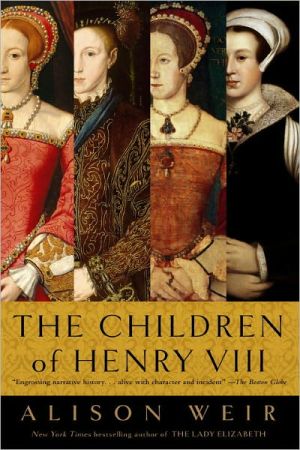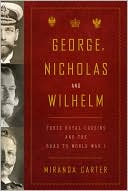Royal Affair: George III and His Scandalous Siblings
The acclaimed author of Aristocrats returns with a major new book that reveals the story of a regal family plagued by scandal and notoriety and trapped by duty, desire, and the protocols of royalty.\ History remembers King George III of England as the mad monarch who lost America. But as a young man, this poignant figure set aside his own passions in favor of a temperate life as guardian to both his siblings and his country. He would soon learn that his prudently cultivated harmony would be...
Search in google:
The acclaimed author of Aristocrats returns with a major new book that reveals the story of a regal family plagued by scandal and notoriety and trapped by duty, desire, and the protocols of royalty.History remembers King George III of England as the mad monarch who lost America. But as a young man, this poignant figure set aside his own passions in favor of a temperate life as guardian to both his siblings and his country. He would soon learn that his prudently cultivated harmony would be challenged by the impetuous natures of his sisters and brothers, and by a changing world in which the very instituation of monarchy was under fire.At the heart of Stella Tillyard’s intimate and vivid account is King George’s sister Caroline Mathilde. Married against her will at fifteen to the ailing king of Denmark, she broke all the rules by embarking on an affair with a radical young court doctor. Their rash experiment in free living ended in imprisonment, death, and exile and almost led their two countries to war. Around this tragedy are woven the stories of King George’s scandalous brothers, who squandered their time and titles partying and indulging in disastrous relationships that the gossip-hungry press was all too delighted to report.Historians have always been puzzled by George’s refusal to give up on America, which forced his government to drag out the Revolutionary War long after it was effectively lost. Tillyard suggests that the king, seeing the colonists as part of his family, sought to control them in the same way he had attempted to rule his younger siblings.In this brilliantly interpretive biography, Stella Tillyard conjures up aGeorgian world of dynastic marriages, headstrong royals, and radical new ideas. A compelling story of private passions and public disgrace, rebellion and exile, A Royal Affair brings to life the dramatic events that served as a curtain-raiser to the revolutions that convulsed two continents. Publishers Weekly The British monarch who viewed America's Revolutionary War as a rebellion of ungrateful children against their father had a fatherly relation to his five younger siblings who brought him abundant heartache, as Tillyard relates in a gifted, prodigiously researched history. Headstrong Princess Augusta made no secret of her misery with Karl, duke of Brunswick, who spurned her for other women, his illegitimate children, regional politics and warfare. With no public role allotted to Edward, duke of York, the charming rake and gambler roamed the world seeking amusement and novelty with a coterie of restless aristocrats until he died, at 28, of malaria in Monaco. And when George's favorite brother, William, duke of Gloucester, flouted George's authority with a secret marriage, the wounded king refused to acknowledge his ambitious sister-in-law. The worst offenders were Prince Henry, duke of Cumberland, who was a third party in a sensational divorce trial, and Caroline Mathilde, who cheated on her husband, the mad Danish King Christian, with his German physician and ruled Denmark with her lover until she was exiled and her lover executed in a coup that almost provoked war with Britain. As Tillyard (Aristocrats) spotlights lesser-known royals, she keenly demonstrates how the private and public lives of monarchs are often intertwined. (Dec. 5) Copyright 2006 Reed Business Information.
\ \ A Royal Affair\ \ \ \ By Stella Tillyard\ \ \ Random House\ \ \ Stella Tillyard\ All right reserved.\ \ ISBN: 140006371X\ \ \ \ \ Chapter One\ \ chapter one\ "Fritz Ist Dode"\ eath came suddenly for Prince Frederick, ambushing him as he recovered from a temporary sickness, grabbing him by the throat, squeezing his life away. "Je sens la mort," he cried out in his third language and with accurate finality. Convulsed with spasms, the Prince of Wales wrestled with the specter, wordlessly and in vain, watched by his helpless wife and doctors. In minutes he was gone, a man who a little while before had been sitting up in bed listening to his dancing master Dunoyer play tunes on the fiddle, cheerfully demanding to see his friends. With him went the future and the hopes of his wife, Augusta; the safety and bustle of a happy family home; and the childhood of his eldest son and heir. It was March 21, 1751, a little after nine o'clock on a black, sharp evening in London, silent round the bed.\ Eventually, someone whispered that the king must be told. Lord North, a courtier who had been idling away the evening in another part of the house, was summoned by the Princess of Wales and dispatched to St. James's. Walking as fast as his dignity and near fifty-year-old legs would allow him, North crossed the courtyard of Leicester House into the open space of the square in front, where the new, brightly gilded equestrian statue of Frederick's grandfather George I winked in the smoky darkness. Along the royal mews at the bottom of Haymarket, acid fumesfrom scores of horses floated on the air. Lord North wove his way through servants out for the evening and chairmen carrying the rich home above the litter and dirt of the street. At the palace, he found George II downstairs in the rooms of his mistress Lady Yarmouth, playing cards after supper, as he liked to do every day.\ Accounts had it that when Lord North delivered his message, the king showed no trace of emotion or shock. "Why, they told me he was better," he said and put down his cards. Walking across to Lady Yarmouth, he leaned over her chair and whispered loudly, "Fritz ist dode," before leaving the room and breaking up the company. A few months later he declared without remorse or shame, "This has been a fatal year in my family. I lost my eldest son, but was glad of it." Thereafter he seldom mentioned Frederick's name.\ At Leicester House, in the morning, surgeons began cutting up the prince's body, looking into his organs for a way of explaining their failure to predict his death. The prince's friend and creditor George Bubb Dodington, upset at the cavalier way the doctors were flinging royal body parts about, ordered that the prince's discarded bowels "be put in a box covered with red velvet and carried in one of his coaches, by such attendants as his Groom of the Stole should appoint, and buried in Henry VII's chapel in Westminster Abbey." Soon afterward, the rest of Frederick's corpse, emptied out, embalmed, and re-dressed, was taken to a black-draped room in the House of Lords. His friends and relatives filed past in the muffled half darkness, and later the prince's servants kept a vigil, standing by the waxy gray face from which all life had gone. On the morning of April 13, the coffin was closed for its journey to Westminster Abbey. Four peers held a black pall taut over the top of the coffin, and Frederick's servants walked behind it, called and following according to their rank, the most important at the front.\ It was a muted procession and a short way to go. With the deep tenor of the abbey bell sounding its mournful toll over the bustle of the river and the streets, the coffin bearers left the House of Lords, crossed Palace Yard, and filed between lines of stiff and silent soldiers to the gray, sheer bulk of the abbey. Instead of using the main west door and processing down the long, monument-cluttered nave, they went discreetly through the abbey's side entrance into the southeast transept. Passing the tightly crowded area where the nation commemorated its writers and musicians, the party "turned short into Henry VII's chapel," as Dodington put it. The funeral service was perfunctory and bald, "performed without either anthem or organ," he wrote, and added in dejection, "so ended the sad day."\ Frederick's coffin was added to the rest of his remains in the vault under the veiny white-and-black-marble checkered floor, in cold proximity to his mother, Queen Caroline, who had been there nearly fourteen years. In decades to come the melancholy catalog would lengthen and a warring family would be brought together again. Silent and unable to quarrel, they would crumble to dust while the busy air worked holes in their coffins. King George II and Queen Caroline; Frederick and his wife, Augusta; his brother, William, and sisters Amelia and Caroline, his daughters Elizabeth and Louisa, and his sons Edward and Frederick: they lie forgotten, their lives squeezed into inscriptions on the slabs above them, walked over by backpacked wanderers unaware of the hatreds and the loves boxed up beneath.\ When Prince Frederick's eldest son, Prince George, was told that his father had died, he said nothing, though an observer noticed that he swayed and "nearly fainted." Then, with the odd, dislocated emotion he would always show in public until he went mad thirty-eight years later, he put his hand on his heart and said, "I feel here as I did when I saw the workman fall from the scaffold at Kew." Shock rather than sadness was what the new heir to the throne expressed. He did his best to hide his feelings, though in the months to come he was lethargic, as if grief was working its way through him slowly, tiring him out.\ Until that March morning in 1751, Frederick's children had had happy lives, brought up in the country at Kew and in London at Leicester House, well away from the suffocating gloom of St. James's and undisturbed by the quarrels which blighted both generations of Hanoverians that had come before them. Prince George and his seven siblings were British, nourished on Anglicanism and the sweet, new mythology of Britannia. But their father and mother were German, and all their four grandparents were German, too. English may have been spoken at Leicester House, but George II preferred his native tongue, and his grandchildren were all good German speakers whose roots, snaking beneath British topsoil, were sunk deep into the bedrock that ran right under the North Sea to their ancestral land of Hanover. British-born, German-bred, Frederick's children never lost a sense of their connectedness to northern Europe and its constellation of Protestant rulers. Joined by geography, custom, religion, and the history of their own family to the Continent, their own lives were shaped by it invisibly, irrevocably, and in ways that Britons sometimes did not see and often preferred to forget.\ Prince Frederick, just to begin with, was not Frederick until he was twenty-one. Until then he was Friedrich Louis, born in Hanover in 1707, grandson of its elector, Kurfürst Georg Ludwig, son of the elector's heir, Prince Georg, and his wife, Wilhelmine Caroline. Friedrich's contented nursery happiness with his sisters at the Leineschloss in Hanover and especially at Herrenhausen, outside the town, was shattered when, in 1714, the Elector Georg became George I of Great Britain. First the elector grumpily left for his new country. Then, in October, the new Prince and Princess of Wales followed, carting their possessions across the North Sea in a flotilla of twenty-two warships, four frigates, six transports for personnel, and the royal yacht Peregrine, where the Princesses Anne and Amelia played as the autumn wind sped them across the channel.\ Friedrich was left alone in Hanover, pale and small, his family's representative in a court that the elector decreed must lose none of its order and magnificence. Much of the time he was allowed to be a little boy, with dogs, pages, and even a surrogate princess, Magot Veltsen, to play with. But he had adult duties, too. The court was open every day, and each Sunday, and on other occasions when foreign diplomats or aristocrats passed through, a levee was held. Then, Elector Georg Ludwig, in his long, white wig with its rows of curls like waves on the sea, was propped up, in portrait form, on a ceremonial chair, while little Friedrich, beside him on another, received his guests. Visitors bowed first to the elector's image and then to the prince, and spoke throughout in the hushed tones habitually used when Georg Ludwig was actually present. Meals and chapel services on these days were similarly conducted. The preacher addressed the elector's empty pew, and the guests praised his table and his hospitality.\ Friedrich, who would be elector one day, was more than happy to act his part, even though he was small for his age and his own straight, pale hair was no match for Georg Ludwig's billowing wig. As time went on, study supplemented play. By the age of fourteen, Friedrich had two tutors, von Neubauer and Meinhardt Kunel, as well as an English teacher, Jean Hanet. Two army lieutenants taught him mathematics, "artillerie," and fortification. He learned the histories and memorized the genealogies of the princely houses of Braunschweig- Lüneburg, Bavaria, the Palatinate, Brandenburg, and, of course, Hanover. He was now reading Latin prose, "almost entirely on his own," studying philosophy in French and theology in German. Never a particularly scholarly or attentive pupil, he did learn to glance through a text, gut its contents, and pass muster as a reasonably cultivated young man.\ Hanet, Friedrich's English teacher, both taught him the language and gave him a picture of his future kingdom by taking him through Addison's Spectator, which had first appeared in 1711. The prince was captivated by the vision of life Joseph Addison offered him and began to model himself upon Addison's protagonist, Mr. Spectator himself, the ideal of urban politeness. In the journal's pages, comportment, politics, conflict, and intellectual inquiry were removed from the court, the pulpit, and the battlefield. Transformed by the alchemy of good manners and conversation, they were put into the secular, self- consciously modern environments of the drawing room, the coffeehouse, and the parlor. Addison's ideal reader was, to be sure, a gentleman, but one who bore little relation to his uncouth forebears. Neither Restoration court wit nor rapacious military hero, he was an urban family man, cultivated, educated, moderate, and amused.\ In The Spectator, Addison was drawing the faint outline of the new age that was dawning. He had seen the changes in his city, and he had read new philosophical work that advocated tolerance and described man as self-made rather than a creature at the mercy of forces beyond his control. Addison realized that the interlocking forces of religion, war, and hunger would soon cease to drive events and dominate thought and feeling either in Britain or on the Continent. Subscribers to The Spectator were offered the chance to participate in a new world as both readers and actors. Friedrich was set fair to become its inheritor, a gentleman prince and an honorary member of Mr. Spectator's club.\ London, when Friedrich arrived there in 1728--becoming Frederick on the way--was everything he had hoped for. As Prince of Wales since his father had ascended the throne as George II a year earlier, he could expect a sumptuous income, a household of his own, and the delights of both court and city to be his. But the welcome he wanted from his own family never came. In fourteen years his mother and father had forgotten him. Besides, seven years before, Queen Caroline had given birth to another boy, William Augustus, the future Duke of Cumberland. As the prince grew into a child whose cleverness matched the queen's own, her lack of interest in Frederick turned into blank indifference and then fixed dislike. Thwarted by the principle of primogeniture, which not even the most devoted mother could overturn, she came to see William as the worthy heir and Frederick as a frustrating obstacle. When her elder son actually arrived in London, dislike turned to hatred.\ Queen Caroline was a difficult, clever, restless woman. As the orphaned child of minor Bavarian princelings, moved from court to court at the whim of her extended family, she was treated as a burden and starved of affection. At thirteen she went to live with the King and Queen of Prussia outside Berlin, and there she quickly seized her chance to act upon a wider stage, impressing a host of visitors with her intellect and fine figure. In the wealthy, cosmopolitan Prussian court, Caroline developed a love of dispute and a yearning for power that were fueled by years of insecurity and neglect. These qualities, which became more exaggerated as time went by, defined her far more than any of her personal relationships, particularly those with her children.\ Becoming Queen of England and first lady at the Court of St. James's did not improve Caroline's narrow and domineering character. Courts often brought out the worst in their denizens, making the humble servile and the exalted self-indulgent. Gossip and scheming followed those close to the royal family, and whispers ran round every corner. Courtiers vied for the monarchs' approbation, and Caroline liked to demand extravagant gestures of loyalty before she gave it. But the Bill of Rights and the Act of Settlement had severely limited the powers of the monarch, and besides, Caroline was outsmarted by the long-serving Sir Robert Walpole, who was kept on by George II despite the fact that he had been his father's minister. Caroline had urged her husband to retain Walpole as first lord of the treasury and effective prime minister, but her support of him did her no good, and Walpole described his dominance over the monarchs with one of his famous barnyard flourishes, saying, "I have the right sow by the ear." Unable to exercise much more than her personal power over the king, Caroline diverted her immense emotional and intellectual dissatisfaction into thwarting those whom she believed opposed her and nurturing those who shared her growing bitterness. It could not have taken Frederick long to realize not only that his brother, William, had thoroughly supplanted him in his mother's affections but that the queen had nothing left to give him but her scorn. George II, always influenced by his wife's opinion of others, took little notice of him. "I think this is not a son I need be much afraid of," George was said to have announced to Walpole with evident relief some time after Frederick's arrival. Thereafter the king relapsed into indifference and seemed unconcerned when visitors at drawing rooms noticed his evident coolness.<<P>Continues...\ \ \ \ \ \ Excerpted from A Royal Affair\ by Stella Tillyard Excerpted by permission.\ All rights reserved. No part of this excerpt may be reproduced or reprinted without permission in writing from the publisher.\ Excerpts are provided by Dial-A-Book Inc. solely for the personal use of visitors to this web site.\ \
\ Publishers WeeklyThe British monarch who viewed America's Revolutionary War as a rebellion of ungrateful children against their father had a fatherly relation to his five younger siblings who brought him abundant heartache, as Tillyard relates in a gifted, prodigiously researched history. Headstrong Princess Augusta made no secret of her misery with Karl, duke of Brunswick, who spurned her for other women, his illegitimate children, regional politics and warfare. With no public role allotted to Edward, duke of York, the charming rake and gambler roamed the world seeking amusement and novelty with a coterie of restless aristocrats until he died, at 28, of malaria in Monaco. And when George's favorite brother, William, duke of Gloucester, flouted George's authority with a secret marriage, the wounded king refused to acknowledge his ambitious sister-in-law. The worst offenders were Prince Henry, duke of Cumberland, who was a third party in a sensational divorce trial, and Caroline Mathilde, who cheated on her husband, the mad Danish King Christian, with his German physician and ruled Denmark with her lover until she was exiled and her lover executed in a coup that almost provoked war with Britain. As Tillyard (Aristocrats) spotlights lesser-known royals, she keenly demonstrates how the private and public lives of monarchs are often intertwined. (Dec. 5) Copyright 2006 Reed Business Information.\ \ \ \ \ Library JournalThe fame of King George III rests almost solely on losing the American colonies and going mad. Black (history, Exeter Univ., U.K.; The British Seaborne Empire) has produced a magisterial new treatment of George's life (1760-1820), exploring his long and eventful reign. Drawing on original research (especially into the English and Hanoverian correspondence) as well as synthesizing recent historiography, Black positions the king relative to his predecessors; places him in context with contemporary European rulers; considers the political development and constitutional implications of his reign; recovers the role of the Hanoverian possessions; and takes seriously the king's moral, religious, and cultural influences. Black locates the American War of Independence as the defining feature of George's reign (although one wonders if the subtitle is not calculated to boost sales in an American market) and moves away from treating the king's mental state as determinative. Black's background in Anglo-American military, diplomatic, and cultural history serves him well here, though some may find his prose a bit heavy. Libraries interested in a more intimate biography may prefer Christopher Hibbert's George III: A Personal History. Tillyard presents an altogether different side of George III, not so much as monarch but as family head. George's five underemployed sisters and brothers became pawns in the dynastic marriage game, although they did not always cooperate enthusiastically with the semipublic, semiprivate roles they were assigned. George's reign produced the Royal Marriages Act of 1772 (in part to keep royal unions in the personal control of the monarch)-a legal provision that continues to impact the royal family today. Tillyard writes in an engaging, quick-moving style; her prose is less weighty than Black's (Tillyard's previous book, Aristocrats, was turned into a Masterpiece Theatre series), though she relies on solid archival research carried out in Britain, Denmark, and Germany. Black's book is recommended for all college and research libraries; Tillyard's work is recommended for public libraries and undergraduate collections.-Matt Todd, Northern Virginia Community Coll., Alexandria Copyright 2006 Reed Business Information.\ \ \ Kirkus ReviewsBritish historian Tillyard (Citizen Lord, 1998, etc.) paints a Hanoverian family portrait centered on the reign of the eldest brother, who became King of England in 1760. Prince of Wales at 13 due to the sudden death of his father, George III succeeded his grandfather to the throne at 22. With the title came the need for a queen and an heir. An arranged marriage solved this first dilemma, though bride and groom met just five hours before their wedding. Such are the gossipy stories contained in Tillyard's latest. Relying heavily on material in foreign collections, she focuses mainly on George's sister, Caroline, and brothers Henry and William, presumably because their stories are more ribald than those of staid siblings Augusta and Edward. None of them left much in the way of documents, and the author speculates that George himself probably removed anything scandalous from his own collection. Tillyard still teases out a surprising amount of detail. Married off at 15 to her cousin, the King of Denmark, who proved both neglectful and mentally ill, Caroline found herself alone and bored in a distant land. She began a secret affair with the royal doctor, who manipulated power in the kingdom for nearly two years until the scandal became known. Back home in England, Prince Henry was far less secretive about his romantic pursuits. Catching him in flagrante, one cuckolded lord sued the prince for damages and won; Henry had to be bailed out by his richer brother. William's secret marriage (without royal approval) resulted in passage of the Royal Marriages Act. George had his own problems, most notably with a group of troublemakers in a place known now as America. This dispute, as well as the king'sslow spiral into insanity, are only briefly covered. A juicy account of George's challenging and colorful relationships with his siblings, told from a fresh perspective.\ \








